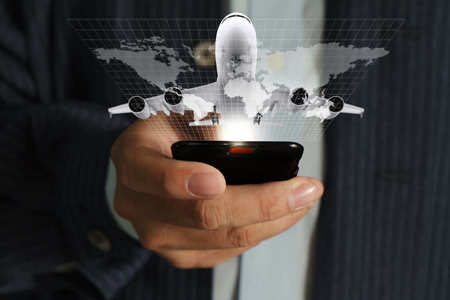
Deciphering IRS rules on business travel deductions is critical for reducing tax liability effectively and maintaining compliance. Thankfully, you can rely on your CPA to do this work. But you should have an idea of what allowable deductions for business travel are, so you can maximize them to their fullest advantage. Business travel often incurs a variety of expenses; understanding which ones are deductible, how to document them, and the common pitfalls to avoid can save substantial amounts in taxes. Below is an in-depth exploration of the rules surrounding deductible business travel expenses.
Criteria for Deductible Business Travel
For travel expenses to be recognized as deductible by the IRS, they must satisfy several key criteria:
Ordinary and Necessary - The expense should be common and accepted in your field. For example, if attending industry conferences is a standard part of business operations in your sector, the costs associated with such events are typically considered ordinary and necessary.
Away from Home - This means that your business obligations require you to be away from the general area of your primary place of work for a period longer than an ordinary day’s work. This often necessitates sleeping or resting to meet the demands of the work effectively.
Temporary - The travel must be short-term, generally expected to last less than one year. If the travel extends beyond this, it might not qualify as temporary, changing the nature of the expense deductions.
Detailed Breakdown of Deductible Business Travel Expenses
Following is a detailed breakdown of deductible business travel expenses, covering everything from transportation to meals and other incidental costs.
1. Transportation
Transportation costs are among the most significant expenses incurred during business travel. Deductible expenses include:
Airfare, train, and bus tickets - These are fully deductible when they are directly related to your business travel.
Car expenses - If you use your personal vehicle, you may choose to deduct the standard mileage rate (which covers gas, depreciation, and maintenance) or actual expenses incurred during the trip. Keeping a detailed log of business miles traveled is crucial for this deduction.
Rental cars - You can deduct the cost of renting a car for business purposes. If the car is used for both personal and business purposes, you can only deduct the portion of the expense that corresponds to business use.
2. Lodging
Accommodation expenses incurred while on business travel are deductible. However, these expenses must be necessary and not overly extravagant.
Hotel costs - Reasonable hotel charges are deductible. The IRS will not typically question standard business-class accommodations, but luxury suites that far exceed the norm for your level of business might not be fully deductible.
Airbnb - Again, reasonable charges are deductible. Try to book something mid-range in price for the area.
3. Meals
Meal expenses during business travel can be tricky due to their partial deductibility.
Meals alone and with business associates - Whether dining alone or with clients or colleagues, 50% of your meal expenses are deductible. Keep meticulous records that include who attended and the business purpose of the meal.
Documentation required - Receipts should be retained for all meals claimed, along with notes on the discussion or business conducted during the meal.
4. Other Expenses
Several miscellaneous expenses associated with business travel are also deductible:
Baggage fees - Charges for checking bags necessary for your business activities are deductible.
Shipping costs - Costs incurred from sending marketing materials, documents, or other business-related items to your travel destination.
Dry cleaning and laundry - These services are deductible when required during your travel.
Tips - Tips given for services related to any of the aforementioned business travel expenses.
Internet charges - Necessary for fulfilling business responsibilities, such as checking emails or conducting online meetings.
Importance of Record-Keeping and Documentation
Effective documentation is key to ensuring that your deductions are accepted in the event of an IRS audit.
Travel logs should include:
Detailed records of travel dates, destinations, and the purpose behind each trip. Include agendas or schedules for conferences to substantiate the business nature of the travel.
Receipts are necessary for:
Proving the cost of travel, lodging, meals, and other expenses. Digital or physical copies should be organized and readily available.
Vehicle use must be documented with:
A detailed log if using the standard mileage deduction, including the reason for each trip, the start and endpoint, and the total miles driven.
Common Pitfalls to Avoid
To ensure compliance and maximize your deductible expenses, be aware of these common mistakes.
Personal expenses - Expenses that are primarily personal in nature, such as family meals or an extra day of sightseeing, are not deductible.
Excessive spending - Expenses that do not align with the norm for reasonable business expenses in your industry may be flagged by the IRS.
Poor documentation - Inadequate records are a frequent cause of disallowed deductions. Always keep detailed documentation of all expenses, regardless of size.
Conclusion
Business travel deductions offer significant opportunities for tax savings, provided they are properly documented and strictly business-related. By understanding the nuances of what expenses are allowable and how to substantiate them, you can effectively leverage these deductions to reduce your tax liability. Regular consultations with your CPA can ensure that you stay informed about current tax laws. At the end of the day, all you need to do is to make sure you document all your expenses. That means keeping receipts, keeping mileage logs, and more. If you can provide receipts.
by Kate Supino
